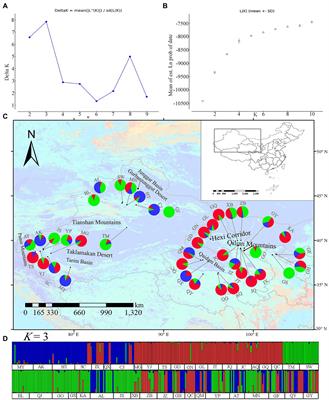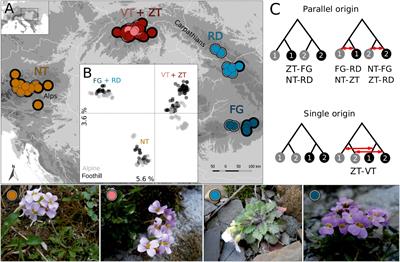ORIGINAL RESEARCH
Published on 30 Jun 2022
Phylogeography and Population Genetics Analyses Reveal Evolutionary History of the Desert Resource Plant Lycium ruthenicum (Solanaceae)

doi 10.3389/fpls.2022.915526
- 1,670 views
- 5 citations
6,285
Total downloads
28k
Total views and downloads
Select the journal/section where you want your idea to be submitted:
ORIGINAL RESEARCH
Published on 30 Jun 2022

ERRATUM
Published on 26 Nov 2021
ORIGINAL RESEARCH
Published on 23 Sep 2021

ORIGINAL RESEARCH
Published on 06 Aug 2021

PERSPECTIVE
Published on 22 Jun 2021

REVIEW
Published on 16 Dec 2020

ORIGINAL RESEARCH
Published on 08 Dec 2020

